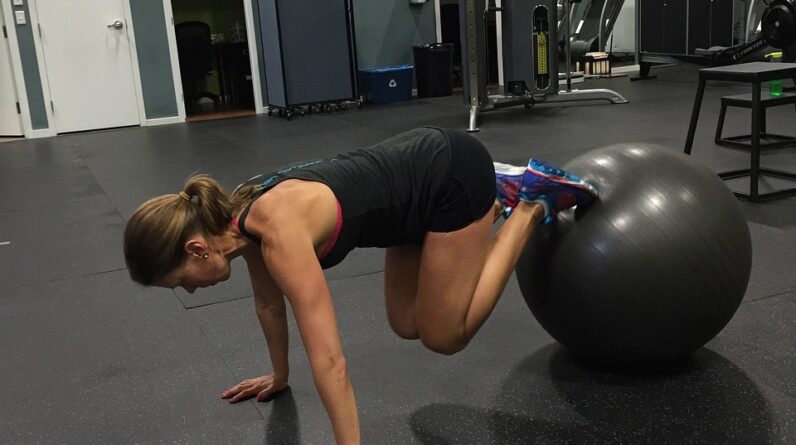
**Affiliate Disclosure**
Please note that some of the links on this site are affiliate links, and at no additional cost to you, we may earn a commission if you decide to make a purchase after clicking through the link. Any commission we make is income for the work put into supplying the information presented on this website.
Core Stability vs Core Strength

When talking about your core muscles, you might think that the ultimate goal is to make them as strong as possible, just like with working out any other muscle. You also might be hearing people talk about core stability, but might not know exactly what the term means. While the two concepts are related by the same muscle group, the specifics are actually very different. Find out what makes core strength so separate from core stability, how they affect your body and what you can do to modify your workouts to focus on your core more effectively.
What is core strength?
As its name suggests, core strength refers to the actual strength of your core muscles. For many people, the first thing that comes to mind is the abs, and the ideal workout move to strengthen them are sit-ups.
While having strong core muscles can help with various actions, such as your jumps and throws in different sports, excessive strength training for the core eventually leads to a plateau in results. Additionally, these strength-training moves don’t provide specific help in improving your stability, instead leading to little more than a more defined six-pack.
What is core stability?
Core stability refers to your ability to keep your spine from movement during physical activity. That can be anything from keeping level while planking to swimming in a straight line, as the core muscles are integral in virtually all forms of physical activity.
Stability comes from engaging all of the muscles in your core, not just your ab muscles, and thus involves a much more complex focus on the region. All of these muscles help you to control your body more effectively, starting out by keeping the spine from bending or flexing unintentionally and extending to your ability to better utilize your arms and legs.
The core muscles are the workhorse of your body and influence the way you move in every capacity.
The benefits of core workouts

While both types of core workouts can have a positive impact on your health and your everyday life, core stability training is likely going to yield better and more noticeable results. This is because stability is an integral part of a wide range of activities, whereas the base strength of your core has a more limited focus.
Increasing your stability helps you to execute better form, and sustain it for longer, because you are more capable of controlling your body. More core stability helps you to keep from leaning forward while you run, which can lead to a decrease in speed and form over time. Similarly, being able to keep your body still during stretches makes them more effective at reducing injury, as well as ensuring that you do not unintentionally hurt yourself.
How to train for stability
For the most balanced results, you should focus on improving both your core strength and your core stability to avoid creating an imbalance in your body. Despite the differences between each type, the two are very much related through the shared musculature and functionality. The key is to refrain from putting too much emphasis on either camp and retaining an even focus on the entire body.
Moves such as planks help to engage the entire core, rather than overly targeting a single section. An easy way to help identify moves that can improve your core stability is to see if they involve stability to begin with. For example, because a plank requires you to keep your body still and level with the ground, you know its engaging those muscles. Alternately, crunches typically only focus on your ab muscles and thus may not have a major impact on your stability.

